This article was co-authored by wikiHow staff writer, Jennifer Mueller, JD. Jennifer Mueller is a wikiHow Content Creator. She specializes in reviewing, fact-checking, and evaluating wikiHow's content to ensure thoroughness and accuracy. Jennifer holds a JD from Indiana University Maurer School of Law in 2006.
There are 10 references cited in this article, which can be found at the bottom of the page.
This article has been viewed 6,308 times.
Learn more...
There are a number of physicians who are general practitioners, but others prefer to specialize in a particular field. Specialist physicians get additional education and training to become experts in their chosen field.[1] X Research source The medical field is highly competitive, so work hard and don't get discouraged! Here, we've gathered answers for some of the most common questions about how to become a specialist physician.
Steps
What types of specialties are there?
-
There are at least 20 different specialties that you can choose from. Specialties are defined by the types of patients you treat and the conditions you handle. Within each broad specialty, there are also subspecialties that you can choose to focus on—or you can keep your focus more general. Here are some examples of specialties and subspecialties:[2] X Trustworthy Source Association of American Medical Colleges Nonprofit organization repsonsible for the administration of the MCAT and for facilitating the medical school applications process Go to source
- Pediatrics: adolescent medicine, child abuse pediatrics, developmental and behavioral pediatrics, neonatal-perinatal medicine, pediatric infectious diseases
- Psychiatry: addiction psychiatry, child and adolescent psychiatry, forensic psychiatry, geriatric psychiatry, psychosomatic medicine
- Internal medicine: cardiovascular disease, gastroenterology, geriatric medicine, hematology, oncology, pulmonary disease, rheumatology
- General surgery: hand surgery, pediatric surgery, surgical critical care, vascular surgery
- Neurology: vascular neurology, pain medicine, brain injury medicine, neuromuscular medicine, neurodevelopmental disabilities, clinical neurophysiology
How do you choose what to specialize in?
-
Choose something that interests you and fits your lifestyle goals. Of all the many varied specialties, look for something that challenges you in a good way. You don't want to feel like every day is a struggle! Think about what you're interested in as well as what environments you work best in. Here are some examples to get you started:[3] X Research source
- If you want a job where every day is different and you regularly face life-or-death decisions, you might want to go into emergency medicine.
- If you like working with families and children, you might go into pediatrics or family medicine.
- If you're interested in helping people take control of their health and future, you might go into preventive medicine.
- If you want to help people improve their appearance and enhance their self-esteem, you might go into plastic surgery or dermatology.
When do you choose your specialty?
-
Your 4th year of med school is the best time to choose your specialty. By this point, you've done your core rotations and have an understanding of what's involved with some of the major areas of medical practice. The sub internship rotations you do your 4th year give you one last chance to get exposure in specialties that might not have been covered in your core rotations.[4] X Research source
- If you're having a hard time deciding between a couple of different specialties, go ahead and look for residencies in both. Or, if you're considering a couple of subspecialties, start in the main specialty—you can narrow your focus later.
Do you need to get licensed as a doctor first?
-
Yes, only board-certified physicians can get certified in specialties. This means you'll get your undergraduate degree and your medical degree, then complete your residency. Typically, you'll complete your residency in the specialty you want to pursue, but you can also do a more general residency.[5] X Research source
- For example, you might do your residency in general surgery and then decide you want to further specialize in neurosurgery, which would require additional training.
- Most physicians are residents for 3 to 7 years before taking the exam to become a board-certified physician.
- Medical licensing is state-specific, so check with the state licensing board in the state where you plan to live and work for details on the licensing process.
How do you get certified as a specialist?
-
Pass an exam administered by a specialty board. The path to certification varies depending on the specialty you choose. There are several national organizations representing individual specialties.[6] X Research source You can also get certified through a general specialist organization, such as the American Board of Physician Specialists, which governs 18 different specialty boards.[7] X Research source
- Talk to your mentor or the doctor overseeing your fellowship or residency to find out the best path to certification in your specialty.
- State medical boards also offer certifications in some specialties—usually more general ones, such as pediatrics and internal medicine.[8] X Research source
- Organizations that administer certification exams also have resources you can use to prepare for the exam so you have a better understanding of what kinds of questions will be asked and how your answers will be graded.[9] X Research source
How long does it take to become a specialist physician?
-
It can take as long as 8 years after med school depending on the specialty. Becoming certified as a specialist isn't a race—you want enough experience to feel that you've truly mastered your specialty. For most specialties, this means at least 3 years of training after you've completed your initial residency.[10] X Research source
- Because of the physical and mental demands placed on a surgeon, it can take up to 8 years after you become a board-certified physician to become certified as a specialist.
What is the easiest physician specialty?
-
No specialty is easy, but some have less stress and lower burnout rates. Plastic surgery and dermatology are 2 of the top specialties with the lowest burnout rates. Median income rates are relatively high and doctors in these fields report lower stress rates.[11] X Research source
- If you're looking for a specialty that will give you a greater work-life balance and less stress, focus on something with infrequent exposure to trauma and emergency patients. These types of specialties allow you to go home and not have to worry as much about getting called back in.
- Conversely, the most stressful specialties tend to be emergency medicine and internal medicine. Internal medicine specialists tend to work with older patients who often have multiple health issues.
Which specialty is the highest paid?
-
Specialty surgeons get paid the most, with neurosurgeons topping the list. It stands to reason that more complicated procedures demand higher pay, so it should come as no shock that brain surgeons get paid more than any other specialist, on average, at $616,823 a year in 2019. Thoracic and orthopedic surgeons are also in the top 5 highest paid specialties.[12] X Research source
- Dermatology is the 6th highest paid specialty, with dermatologists earning an average of $455,255 a year in 2019.
What specialties have the highest demand?
-
Family medicine and internal medicine have the highest demand. These are specialists that people tend to encounter on a regular basis. While they typically aren't the highest-paying specialties, you'll never have to worry about finding a position in these areas.[13] X Research source
- In the emerging field of telemedicine, internal medicine and psychiatry take the top 2 spots, followed by radiology, family medicine, and pediatrics.
Can you have more than one specialty?
-
Yes, and doing so can improve your career prospects. As medicine becomes more specialized, individual specialties overlap even more. If you have the opportunity to become specialized in more than one area, it gives you a lot more versatility and makes you more competitive compared to other physicians.[14] X Research source
- For example, if you're already certified as an emergency care specialist, you might also seek certification in urgent care or disaster medicine—both of which overlap significantly with emergency care.
Warnings
- This article focuses on becoming a specialist physician in the US. The process might be different in other countries.⧼thumbs_response⧽
You Might Also Like





 How to Shadow a Doctor in High School
How to Shadow a Doctor in High School







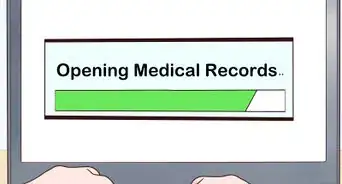
References
- ↑ https://hawaiimedicalassociation.org/what-is-a-physician-specialist/
- ↑ https://www.aamc.org/cim/explore-options/specialty-profiles/
- ↑ https://www.sgu.edu/blog/medical/ultimate-list-of-medical-specialties/
- ↑ https://www.ama-assn.org/residents-students/specialty-profiles/whens-right-time-choose-medical-specialty
- ↑ https://www.abms.org/board-certification/board-certification-requirements/
- ↑ http://aahpm.org/career/certification
- ↑ https://www.abpsus.org/
- ↑ https://hawaiimedicalassociation.org/what-is-a-physician-specialist/
- ↑ http://aahpm.org/career/certification
- ↑ https://hawaiimedicalassociation.org/what-is-a-physician-specialist/
- ↑ https://www.mdlinx.com/article/what-are-the-most-and-least-stressful-physician-specialties-in-america/5qGHkZs8SDfe1Od0XOD8I3
- ↑ https://s3.amazonaws.com/s3.doximity.com/press/US_physician_employment_report_2019.pdf
- ↑ https://s3.amazonaws.com/s3.doximity.com/press/US_physician_employment_report_2019.pdf
- ↑ https://www.abpsus.org/multiple-specialties/
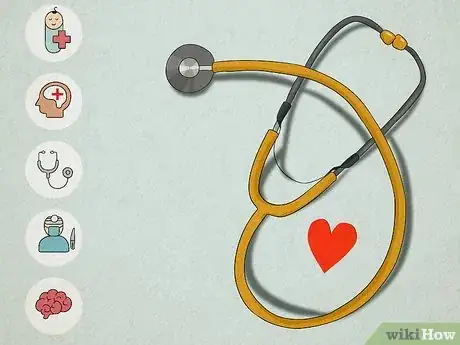
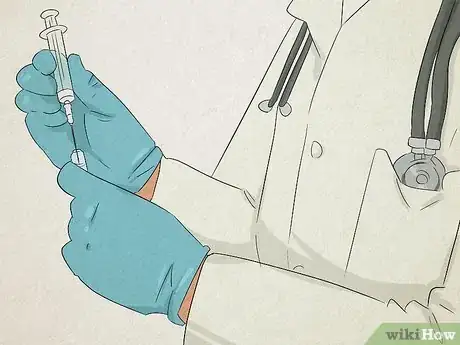
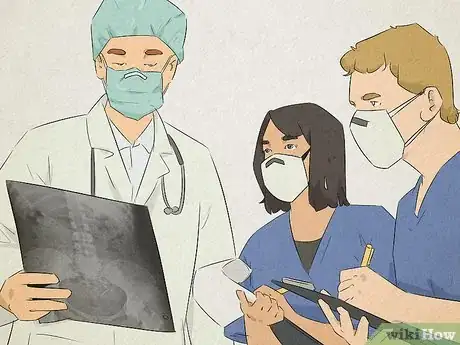
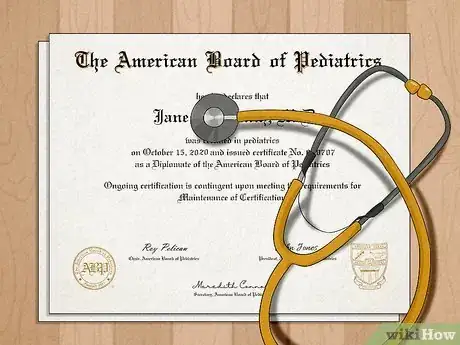

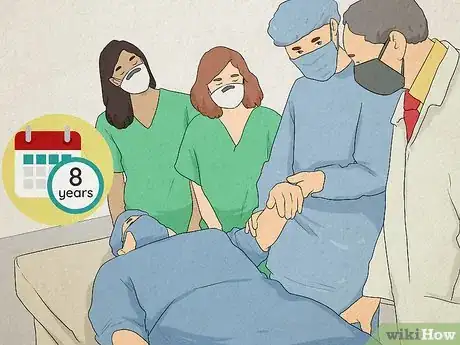
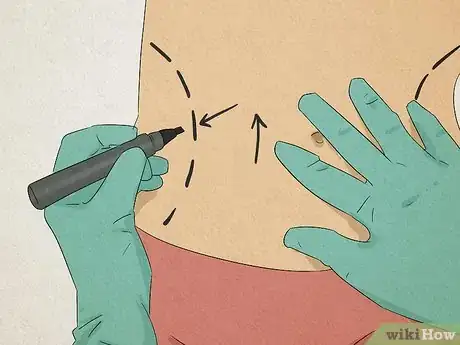
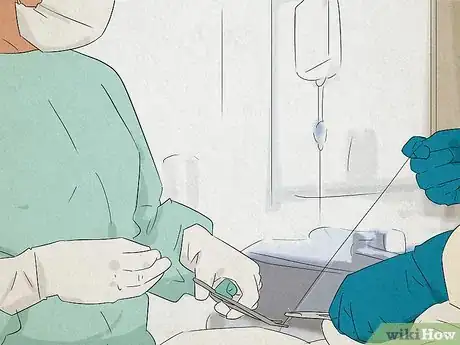

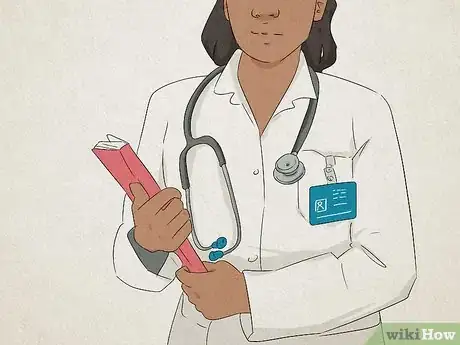

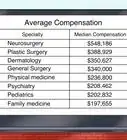







































Medical Disclaimer
The content of this article is not intended to be a substitute for professional medical advice, examination, diagnosis, or treatment. You should always contact your doctor or other qualified healthcare professional before starting, changing, or stopping any kind of health treatment.
Read More...